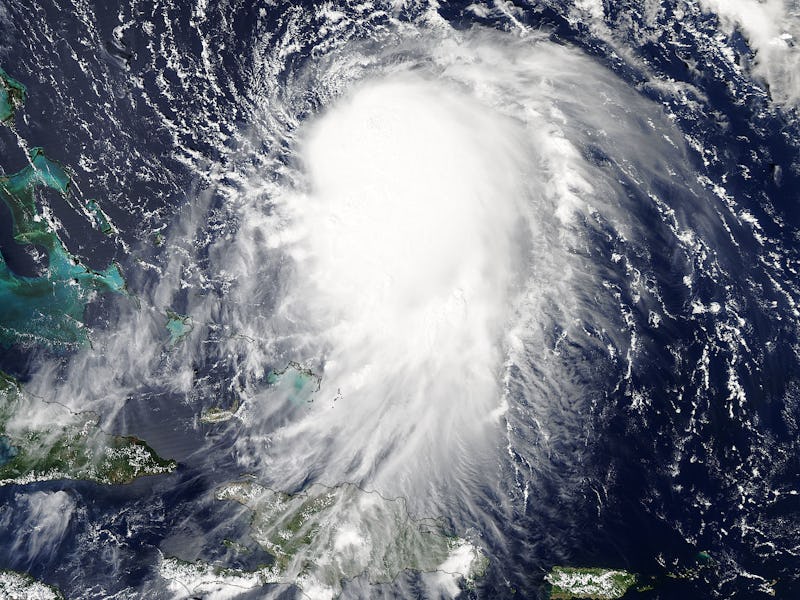The World Meteorological Association Has a Strict Hurricane Name Protocol
If only storms were as predictable as the way they are named.

Here at Inverse we can tell you exactly which tropical storms are on their way.
While Joaquin is today’s media darling, we can say with relatively certainty that Kate is waiting in the wings.
This is not because we are particularly gifted meteorologists or clairvoyants.
It is simply because the World Meteorological Association follows a strict international protocol when it comes to giving storms their names.
Each time a storm reaches an intensity high enough to warrant a name, it is assigned the next one on a sequential, usually alphabetical, list. The protocol varies by region.
This, for example, is the list of names for this year’s Atlantic hurricane season:
Ana, Bill, Claudette, Danny, Erika, Fred, Grace, Henri, Ida, Joaquin, Kate, Larry, Mindy, Nicholas, Odette, Peter, Rose, Sam, Teresa, Victor, and Wanda.
There are six such lists for the Atlantic, and they rotate each year. Therefore, in 2021 the list will be more or less the same.
The only way a new name is retired is if a storm is so destructive that using the same name would be insensitive (or downright confusing.) Read: Katrina, Sandy, Mitch, Tracy.
Those gorgeous but ultimately harmless hurricanes that lined up over the Pacific a month ago?
Kilo, Ignacio, and Jimena are part of the naming system for eastern North Pacific. Linda and Marty have since joined their ranks among this year’s storms.
Coming up this season for Pacific storms could be Nora, Olaf, Patricia, Rick, Sandra, Terry, Vivian, Waldo, Xina, York, and Zelda.
Are you thinking about baby names and how not to name your child after a future deadly storm? There’s no surefire method to avoid this, given that new names are occasionally added to the list. But consulting the entire global compilation of naming lists would reduce the risk significantly.
Choosing a name close to the end of the alphabet would help, too, since the full list of names doesn’t get used every year.
You’re welcome.